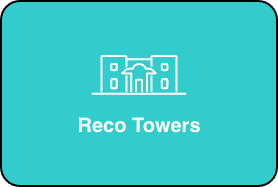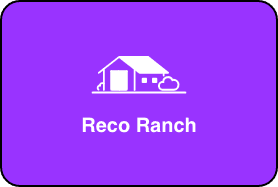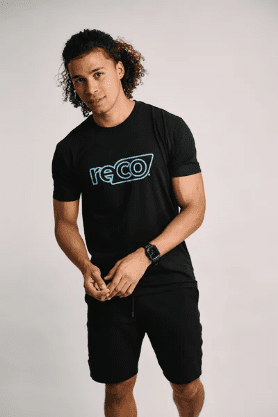Exploring RECO’s Advanced Sober Living Models in Florida

Awakening to a New Horizon in Sober Living
The Evolution of Sober Living Models
Sober living models have undergone a remarkable transformation over the years, particularly in progressive regions like Florida. As society grapples with the complexities of addiction, the necessity for innovative recovery frameworks becomes evident. Delray Beach stands as a beacon of hope, showcasing advanced sober living paradigms that merge tradition with innovation. Here at RECO Institute, we are leading this evolution by implementing holistic recovery approaches that redefine the sober living experience. These advanced sober living facilities in Florida are not just residences but thriving communities promoting recovery resilience and fostering personal growth through intentional designs.
Integrating Holistic Approaches in Delray Beach
Within the vibrant community of Delray Beach, RECO Institute seamlessly integrates holistic recovery approaches into our sober living residences. By focusing on the whole person-mind, body, and spirit-we create an environment where individuals can flourish. This approach is not just about achieving sobriety but enhancing quality of life, encouraging personal development in sobriety and fostering sustainable cocooning of recovery principles. Our integrative recovery techniques are designed to address diverse needs, establishing a balanced and supportive environment conducive to long-term recovery success.
The Role of Peer-led Initiatives
Peer-led initiatives are pivotal in the realm of recovery, providing a supportive backbone that peers can rely on. At RECO Institute, we emphasize peer-led recovery programs to instill a sense of community and belonging among our residents. These initiatives foster a collaborative spirit that aids in maintaining a structured sober housing environment. Through regular house meetings and activities led by peers who have navigated similar paths, residents are empowered to learn from each other, creating a rich tapestry of shared experiences that nurture personal growth and resilience on the path to recovery. The peer-led approach not only encourages accountability but also builds lasting relationships that extend beyond the confines of transitional housing, crafting a lifetime of supportive networks.
The Architecture of Recovery Housing
Designing Therapeutic Sober Environments
Building an effective recovery environment is akin to designing a sanctuary that fosters healing and transformation. At RECO Institute, the focus is on intentional sober environment design, a concept crafted to cultivate a space where individuals feel secure, supported, and inspired to pursue their recovery journey. The architecture of these sober living homes is deliberately structured to support therapeutic community environments, ensuring that the physical space aligns with the psychological and emotional needs of its residents. These spaces are not only functional but are also enriched with elements that promote wellness, such as nature integration, comfortable common areas, and private spaces for reflection and meditation. By instilling a sense of peace and stability, these environments act as a catalyst for personal growth and recovery resilience.
Collaboration between architects, health professionals, and recovery experts is vital in creating these restorative sanctuaries. Every design decision, from lighting to layout, considers its impact on mental health and healing. The strategically designed common areas encourage social interaction and peer-led support while maintaining individual comfort and privacy. This balance promotes both community engagement and personal reflection, essential aspects of a comprehensive recovery strategy. RECO Institute’s dedication to intentional design not only enhances recovery lifestyle transformation in Delray Beach but also sets a precedent for future sober living structures.
Structured Support Systems: A Blueprint to Recovery
A structured support system serves as the backbone of any successful recovery initiative. At RECO Institute, structured sober housing environments are created with the intent of offering consistent support and structure, which are critical for individuals in recovery. These systems are meticulously crafted to provide a nurturing yet firm support network that keeps residents accountable while also allowing them to thrive independently. The blueprint for these systems includes regular house meetings, culturally inclusive activities, and personalized recovery plans tailored to an individual’s unique journey.
Incorporating evidence-based recovery treatment pathways, RECO’s approach ensures that each resident receives the necessary tools and strategies to manage their recovery effectively. The integration of support systems helps individuals adapt to a sober lifestyle, assisting in the development of essential life skills and promoting self-sufficiency. This structure is complemented by dedicated house managers and a well-trained staff, committed to creating a secure and empowering recovery community. Through these elements, RECO Institute builds the framework for sustainable sobriety solutions, ensuring that residents are well-equipped to face life’s challenges.
Navigating Transitional Recovery Residences
Understanding and navigating the complex landscape of transitional recovery residences can be a daunting task, yet it is a crucial step in the journey to long-term recovery. RECO Institute effectively pioneers transitional recovery housing options by delivering a seamless transition from treatment to independent living. The institute bridges the gap between intensive treatment and full independence, providing a structured yet flexible environment that supports gradual reintegration into everyday life.
This model champions a community-focused recovery strategy, ensuring that residents are never isolated in their journey. Instead, they are surrounded by a supportive network of peers who share similar experiences. The structured framework within RECO Institute’s residences provides not only stability but also cultivates an environment where individuals feel empowered to pursue personal and professional growth. Tailored activities and programs foster this growth, helping residents develop skills they will need beyond the confines of the recovery community.
These transitional programs are not mere stepping stones but are fundamental in establishing a foundation for enduring recovery. By prioritizing support systems for addiction recovery, RECO Institute ensures that its residents are armed with the tools necessary to maintain sobriety and thrive independently, setting them on a path of lifelong resilience and success.


Journeying Through Personal Growth and Resilience
Life Skills Development in Sobriety
At the RECO Institute, we place significant emphasis on cultivating essential life skills crucial for maintaining sobriety. Through focused programs aimed at life skills improvement in recovery, residents learn to navigate the complexities of everyday life with newfound resilience. Whether it’s time management, financial literacy, or effective communication, these skills are pivotal in ensuring a stable and fulfilling sober life. By embracing these educational pathways, individuals not only manage their day-to-day better but also develop a proactive mindset that is instrumental in overcoming challenges that come with sobriety.
Moreover, personalized coaching and workshops are integral, empowering residents to foster independence and confidence. The development of these skills aligns with our overarching aim of enhancing personal growth in recovery, ensuring everyone is well-prepared to face the future. Through structured exercises and supportive feedback, each resident is guided to harness their potential fully, steeling them against future setbacks and facilitating continuous personal growth and resilience.
Evolving Through a Structured Sober Environment
The transformation journey at RECO Institute is deeply rooted in a structured sober housing environment that assures consistency and stability. Here, residents experience a dynamic mix of freedom and framework that allows them to evolve in their recovery journey. The supportive structure, embedded in the daily routines and community engagements, is specifically designed to encourage personal responsibility and autonomy while maintaining a safety net of support. This process transforms sober living from a mere necessity into a transformative experience full of opportunities for personal and communal growth.
This structured approach includes tailored routines, daily and weekly objectives, and participatory community norms that collectively form the backbone of our innovative recovery models by RECO in Florida. Our environment fosters a culture of encouragement and accountability, empowering residents to make significant strides towards their long-term recovery goals. It is this meticulous structure that reinforces positive habits and mindsets, ensuring residents remain focused on their path and evolve from structured support to thriving independently in sobriety.
Relapse Prevention: Strategies for Long-term Recovery
Relapse is a common challenge in recovery; however, comprehensive relapse prevention methods are a key focus at RECO Institute to mitigate this risk. Our strategies are multifaceted, involving extensive planning, education, and support designed to help residents recognize and combat triggers effectively. By equipping individuals with a deeper understanding of their addiction cycles and personal vulnerabilities, they are better prepared to counteract potential setbacks.
These preventive efforts are underscored by ongoing support through specialized groups and one-on-one coaching, fostering a resilient recovery mindset. The integration of these methodologies creates an environment where individuals feel empowered to take charge of their recovery journey continuously. With a focus on both immediate and long-lasting outcomes, our relapse prevention strategies blend seamlessly into our holistic recovery approaches, offering residents a robust foundation for sustained sobriety and personal empowerment. This holistic support ensures that recovery is not just achieved but maintained, laying the groundwork for lifelong resilience and a fulfilling, substance-free future.
Conclusion
Reflecting on the Path to a Sustainable Sobriety
As we traverse the intricate landscape of sober living models, the commitment to sustainable sobriety stands paramount. At RECO Institute, we have meticulously designed strategies that focus on long-lasting recovery outcomes, emphasizing the need for a holistic framework that encompasses all facets of an individual’s life. This comprehensive recovery lifestyle transformation in Delray Beach is not just about abstinence but creating a fulfilling and balanced life beyond substance use. By integrating advanced recovery methodologies and fostering personal growth, residents are equipped with the essential tools to navigate life’s challenges, thus ensuring a robust foundation for lasting sobriety.
Embracing the Community-Centered Recovery Approach
Community forms the heart and soul of our recovery initiatives at RECO Institute. By embracing a community-focused recovery strategy, we leverage the strength of collective support to facilitate healing and transformation. This model nurtures a sense of belonging and shared purpose that propels individuals towards recovery milestones. Through engaging peer networks and supportive environments, residents experience personal growth alongside others who share similar journeys. This communal approach reinforces the idea that recovery thrives in environments where people uplift each other, creating enduring bonds and a ripple effect of positive change across the recovery community.
Charting Your Course in Florida’s Sober Transformation
To embark on a transformative recovery journey in Florida is to embrace a path of hope, resilience, and potential. With RECO Institute’s progressive models paving the way, individuals seeking sobriety can confidently step into a supportive and innovative space that champions personal development in sobriety. Florida’s vibrant recovery landscape offers myriad opportunities for those ready to transform their lives. Whether through engaging in structured sober living programs or harnessing the strength of a thriving sober community, RECO Institute provides the unparalleled backdrop for your sober transformation, guiding you towards a rewarding, substance-free future.

Frequently Asked Questions
Question: What makes RECO Institute’s advanced sober living models in Florida stand out from others?
Answer: RECO Institute distinguishes itself through its comprehensive approach to sober living that integrates holistic recovery practices, evidence-based addiction treatment, and a compassionate recovery community. Our focus on personal growth in recovery ensures that each resident’s unique journey is supported through tailored treatment pathways. By combining these elements with structured sober environments designed to promote wellness and community interaction, we provide a robust framework for recovery resilience. Residents are immersed in a supportive recovery housing environment that nurtures personal and communal transformation.
Question: How do peer-led recovery initiatives at RECO Institute enhance the recovery experience?
Answer: Peer-led recovery initiatives are a cornerstone of RECO Institute’s model. These initiatives foster a collaborative environment where residents receive encouragement and support from individuals who have experienced similar challenges. Participating in peer-led activities and group discussions helps build accountability and trust within the recovery community. This approach aligns with our community-centered recovery strategies, promoting lasting relationships and a sense of belonging crucial for long-term recovery success. Residents often find that these peer interactions provide essential insights and mentorship that elevate their recovery journey.
Question: Can you explain the role of holistic sober living approaches at RECO Institute?
Answer: Holistic sober living approaches at RECO Institute address the mind, body, and spirit, ensuring a comprehensive recovery process. Our recovery environment is intentionally designed to include spaces for meditation, reflection, and community engagement, promoting both individual well-being and collective growth. By focusing not just on achieving sobriety but also on enhancing life quality, residents can pursue personal development in sobriety while adopting a balanced lifestyle. Integrative recovery practices are central to this approach, helping residents build sustainable sobriety models that they can maintain independently.
Question: What strategies does RECO Institute employ to prevent relapse among its residents?
Answer: RECO Institute employs multifaceted relapse prevention strategies that combine planning, education, and extensive support. By helping residents understand their personal triggers and addiction cycles, we equip them with the tools necessary to maintain sobriety. Specialized groups, individual coaching, and community support networks keep residents engaged and prepared for potential challenges. These strategies are seamlessly integrated into our holistic recovery model, ensuring that individuals not only achieve sobriety but also sustain it over the long term. This comprehensive approach to relapse prevention underscores our commitment to fostering enduring recovery resilience.
Question: How does the architecture of recovery homes at RECO Institute contribute to therapeutic sober environments?
Answer: The intentional sober living design at RECO Institute is key to creating therapeutic environments conducive to recovery. Our architecture focuses on elements that inspire healing, such as natural light, calm common areas, and personal spaces for reflection. Collaborating with architects and health professionals, we ensure that each design aspect-from layout to lighting-supports mental health and encourages a sense of peace and security. These therapeutic environments are pivotal in advancing personal growth and recovery, as well as lifestyle transformation, setting a precedent for future sober living structures in Florida.















